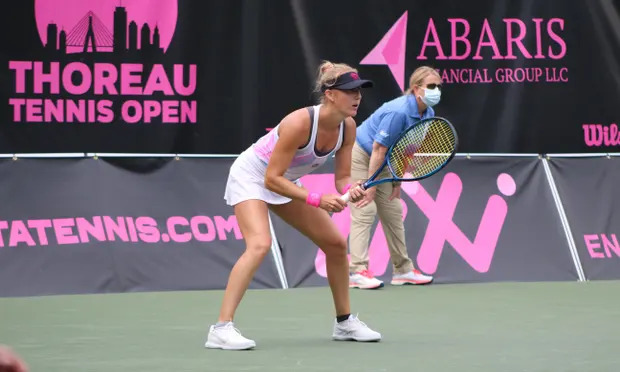
“You get discouraged for the initial two days getting back and the initial two days out and about, as well?”
I assumed I was the main tennis player who battled with this piece of visit life. I’m chatting with perhaps my closest companion in proficient tennis, Taylor Ng, a Dartmouth University graduate who dealt with Wall Street for a very long time prior to seeking after an expert profession. Today, she positions around No 650 on the planet.
We get up to speed and each ask how the other is doing. All the more significantly, we inquire, “Where are you?” Both of us interruption and snicker. Briefly, neither of us can recall the time nor the spot we are. This is typical. All things considered, we change nations week to week. I frequently awaken pondering where I am.
Returning home
On this day, in any case, I’m at last getting back following one month of being out and about. Returning home welcomes on such countless feelings, making players such as myself hyper-mindful of the unsteadiness that proficient tennis can bring. An update even your dearest companions and family can’t completely grasp your life and encounters. It implies understanding that the world you pass on to pursue positioning focuses forges ahead without you – and that while you’re gone, you’re passing up significant occasions and minutes.
Each opportunity I get back home, my nieces and nephews are outlandishly greater. While I’m voyaging, I in some cases stay away from FaceTiming my family on Friday nights – in light of the fact that I realize they are out to supper. At any rate, they call me. I put on a grin for them, despite the fact that I’m miserable that I can’t be at my number one eatery, as well. I snap myself into being available, centered around where I and I’m doing. Wandering off in fantasy land can make me yearning to go home, so it’s better not to.
While conversing with individuals nearest to me – or anybody, truly – I continually remind myself to not sound careless. As an expert competitor, I don’t work a conventional regular work. In numerous ways, I’m lucky. And yet, attempting to make it in my game is everything except alluring. Tennis geniuses have a should be perceived while communicating how desolate, how unrelatable, and, for players positioned external the main 250 or somewhere in the vicinity, exactly the way that sketchy our lives are. Furthermore, that need is frequently neglected.
So returning home can disrupt. Regardless of whether you’re home for just seven days, it can require a couple of days to change – to see where I fit into the timetables and schedules of my family, companions, and beau. Right when I begin to feel good, now is the right time to leave once more. Misery and uneasiness creep in. I’ll make up 100 motivations to delay, knowing in my heart that if I have any desire to find success in tennis, I can’t stand to be everything except focused on my vocation.
In any case, I view myself as fortunate. I love tennis. I can’t envision what like for players are doing this for their folks, mentors, or public alliances.
Raising a ruckus around town
The most effective way I can share and make sense of the emotional well-being difficulties of expert tennis is to stroll through a commonplace excursion. Tracking down the harmony between contending enough to improve, win, and move up the rankings while keeping up with your actual wellbeing through preparing blocks at home can be troublesome – particularly toward the start of your profession. In our game, there is no genuine offseason. A botched competition opportunity can profession change. Consequently, I for the most part venture out four to six weeks all at once. In some cases, I’m away for quite a long time straight – without help from anyone else.
While preparing at home, I’m attempting to sort out where on earth will be the best spot for me to play. I could wind up in a real sense anyplace, from Africa to South America, in the event that I let the International Tennis Federation framework decide for me. In any case, I don’t have that extravagance. Cash is tight, and booking a trip with just shy of multi week before an outing is costly.
At times, nonetheless, I’ll take a risk. I as of late chosen to play a progression of competitions in Brazil. I booked a one-way trip for almost $1,000 and began my exploration on how I will get from one city to another by transport or plane every week. I’m truly trusting that I can follow alongside different players. Despite the fact that I am adequately fortunate to have monetary help from patrons and family, I mentor and write to help myself however much I can. That makes my days longer and seriously tiring, however it takes a portion of the strain to win off my shoulders.
Travel time
I have 40 hours of movement in front of me. Sixteen of them will be on a plane. While my flight tension has improved, not a condition makes my calling more straightforward.
At the point when I show up in another nation, there’s a ton to have a restless outlook on. I frequently will have a few hour vehicle ride with a driver who doesn’t communicate in English. I communicate in Spanish, yet that doesn’t necessarily in all cases help. I have almost no cellphone administration, so I request that my sweetheart track my area, in the event that he can, to ensure that I am really going to my last objective. I begin to consider every one of the manners in which I would escape assuming I was abducted. I advise myself that I’ve required a three-hour taxi ride in Tunisia along the Algerian line – a region that has travel admonitions for psychological oppression – and that things ended up fine. Strangely, this solaces the pit in my stomach.
At last, you trust that you get in the vehicle with somebody who will be who they say they are, somebody associated with the competition. There’s no genuine approach to knowing. It’s intellectually depleting.
I come to my objective of Piracicaba, Brazil. The ride was moderately lovely. After not eating for a really long time, I am eager to show up at the lodging. Then, at that point, I understand nobody here communicates in English, lunch is shut, and I don’t have the foggiest idea where or when I will get my next dinner. I’m certain I will ultimately eat. It’s simply a question having the opportunity to track down an answer before training. Over the course of the following week, I understand my Portuguese is horrible; each time I request food, it’s a secret.
Things change when I at last get together with a companion.
Making companions
Something doesn’t add up about existence on visit that you notice immediately: Everyone makes companions quick. Super quick. Connections move from aliens to closest companions in a solitary week. I’m not misrepresenting.
From the beginning, I thought this was peculiar. Then I understood it’s not. These fellowships are genuine. They structure out of a common distress to be perceived and to not be separated from everyone else. You wind up living with outsiders in small rooms, encountering things that nobody in the remainder of the world is going through. Obviously you bond. It’s an ability to survive.
Some of the time, these fellowships last. Others go back and forth as fast as you fortified. I will always remember making companions so rapidly with one young lady on visit who was positioned around 250. I was to some degree regarded that she wanted to converse with somebody without a positioning around then. Today, she is nearer to the best 100 and most likely wouldn’t glance toward me on the off chance that we ran into each other. I’m not insulted. This is the manner by which it goes on visit.
Here in Brazil, I’m fortunate. An old buddy of mine, Julia, is here to help me. Our relationship isn’t a relationship that endures on the grounds that you have no other person. She’s a genuine companion. What’s more, she realizes I’m battling with the language boundary. I likewise befriend Magdalena, a player from Macedonia. She’s sufficiently benevolent to welcome me to supper, and we bond quickly over great Brazilian food. This sort of holding is normal, as a considerable lot of the hotels at the section level competitions will give you food contamination.
Time for tennis
The competition week is beginning, and match arrangements are concluding. At supper with Magdalena and her mentor, I tell her how envious I am that she will go with a mentor. That can be a gigantic benefit – not just in light of the fact that you have somebody watching you play and telling you doing well and wrong, yet additionally on the grounds that you essentially have somebody there to help you face to face.
This is probably my greatest battle. I call my mentor, who is situated in Boston, after my matches, however some of the time I couldn’t in fact let him know what turned out badly. Playing a match and something else to see it is a certain something.
Then, there are times when I would try and prefer not to call. I would rather not let my mentor know that I lost since I battled with certainty. This feeling frequently suffocates tennis players. Nobody needs to just let it out without holding back, ordinarily for two reasons. Questions and tensions can be unfavorable to execution, so many of us buy into the Fake It To Make It technique: If you can imagine your nerves aren’t there, then, at that point, would they say they are, truly? Then again, discussing your nervousness – which can be sound! – additionally can motion toward your mentors, backers, or adversaries that you’re battling. In the event that they don’t trust in you, or on the other hand on the off chance that they see “shortcoming,” it very well may be a hindrance on and off the court. This normally prompts an endless loop of overthinking. You persuade yourself that you are commendable, and afterward you blow up at yourself when you give indications of breaking. You flip to and fro inwardly. It can consume you.
Sitting with Magdalena at supper is invigorating. She gets directly into it. I tell her I am composing a piece on uneasiness and tennis, and she promptly says, “Presently let me tell you, for what reason don’t we discuss this more?”
She begins discussing an inclination that I know quite well. It’s the most awful sort of uneasiness on the court. The sort that influences your body’s capacity to move. Out of nowhere, you truly accept that you don’t have the foggiest idea how to play tennis. This is strange as far as we’re concerned, taking into account that we’ve played tennis for our entire lives.
According to she, “My arm goes numb and afterward close.” I ponder my dearest companion in school when she says this. My companion had the “serving howls,” which is what we consider it when you can’t deliver the ball on the throw appropriately, making it go out of control.
I return to Magdalena’s insight. I wonder, does she truly feel this to the very level that I do some of the time? It’s difficult to tell. Within, it feels te




Leave a Reply